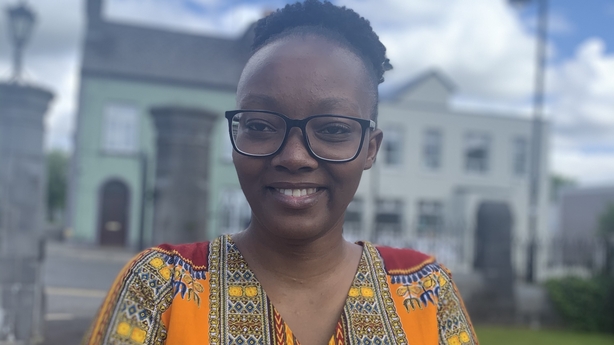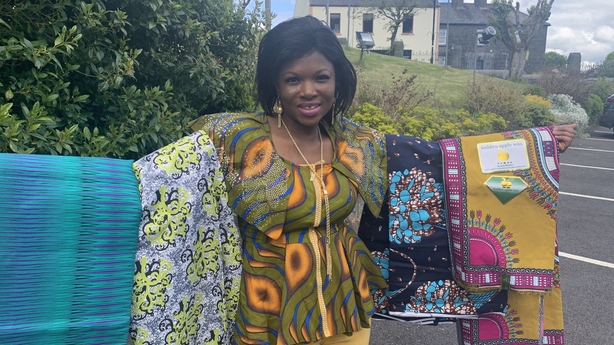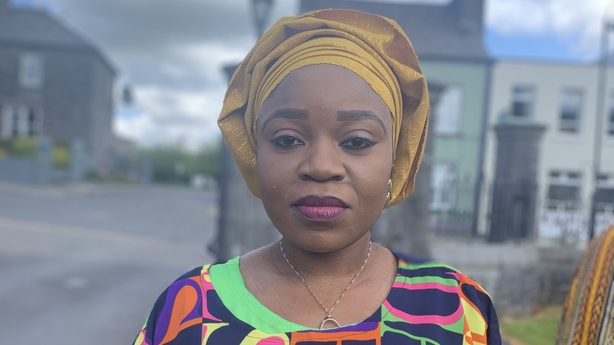Like all annual events right now, there is a low-key buzz to the day designated to celebrate all things African.
It is the second year in succession that people here, and around the world, have had to go online to gather and exchange greetings.
But it has not dampened enthusiasm or reduced the sense of pride felt by members of the African community in Ballyhaunis, Co Mayo.
Today a number of friends gathered outside to talk about the meaning of the day and their hopes for the continent in the coming years.
Like most events linked to one's homeplace, they take on an added significance when you are far from there.
Rispa Mwangi said that when she was in Kenya, Africa Day was just a regular 25 May. But now, she’s more aware of the day, making her feel proud of the traditions, beliefs and culture that formed her. She says she "feels the essence of being African" today.

For many, having a special outfit made is one way of marking the day out, as having a particular relevance.
That’s where Buxayo Wewe comes in.
The Nigerian born fashion designer has had a busy few weeks, ordering fabric online to make a range of dresses, tops, suits and even face masks for her friends.
She says people love to have special attire, typified by vibrant colours, made with an array of cloth from around the continent. Today her friends have been wearing dresses, earrings and elaborate tops made specifically in honour of Africa Day.

The rich and vibrant fabrics that are used for the garments could be an analogy for the culture of Africa itself.
The hundreds of languages spoken across the continent, the traditions that make up the rich tapestry of the place and the different threads that combine to form the vast landmass.
Ola Mustapha says Africa Day in Ireland has also helped shift perceptions. Since her arrival here in 2014, she has seen big changes, with more openness to different cultures.

She is hopeful that "emerging communities" will continue to flourish in the coming years.
"We are not charity cases. We have the capabilities; we just need the avenues to showcase what we have and I hope we are given the opportunity to show the potential that we are bringing to Ireland."
She is also hoping that Africa can take its place on the global stage, pointing out that it is not "the cesspit of disease and poverty" that is often portrayed. Instead, she says, it is a place rich in natural resources and skills that can be tapped and explored by Africans themselves.
But Ms Mustapha says the continent still lacks good leadership and the political will to change things.
"We still have a lot of African countries that still ride on the back of their colonial masters. We need to 'de-colonialise' the conversation… we need to spread our tentacles and prove to the countries in the global north that we are well capable of running things ourselves.
"We're getting there but we're not really there yet."







